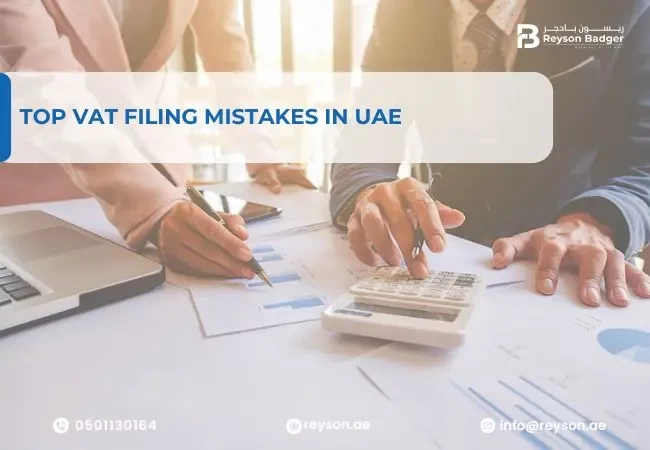

Value Added Tax (VAT) has been a part of the UAE’s financial system since its implementation in January 2018. It has transformed the way businesses handle their taxes, ensuring compliance with legal regulations while maintaining financial accountability. However, navigating the complexities of VAT filing can be challenging, especially for businesses unfamiliar with tax procedures. Mistakes during VAT filing can lead to penalties, fines, and reputational damage.
To help businesses stay compliant, here’s a comprehensive guide to the most common VAT filing mistakes and how to avoid them.
Timely filing of VAT returns is crucial to avoiding penalties. In the UAE, VAT returns are typically filed on a monthly or quarterly basis, depending on the size of the business.
Common Mistake: Businesses often miss deadlines due to poor planning, lack of proper reminders, or insufficient resources.
Solution:
Accurate VAT calculation is essential to ensure compliance. Errors in computation can result from miscalculating taxable supplies, input tax credits, or VAT rates.
Common Mistake: Misinterpreting which goods and services are subject to the standard 5% VAT, zero-rated VAT, or exempt from VAT.
Solution:
3. Failing to Maintain Proper Records
Businesses are required to maintain detailed records of all VAT-related transactions for at least five years in the UAE.
Common Mistake: Poor record-keeping practices, such as losing invoices, receipts, or VAT-related documentation.
Solution:
VAT-registered businesses can recover VAT on eligible business expenses. However, recovering VAT on non-eligible expenses is a common mistake.
Common Mistake: Claiming input VAT on personal expenses, entertainment, or non-business-related purchases.
Solution:
Providing incomplete or incorrect details in VAT returns can lead to audits, penalties, and even rejection of the filing.
Common Mistake: Errors in taxpayer-identification numbers, taxable amounts, or VAT collected.
Solution:
VAT regulations in the UAE are subject to updates and amendments by the Federal Tax Authority (FTA).
Common Mistake: Businesses fail to adapt to regulatory changes, leading to non-compliance.
Solution:
7. Overlooking VAT Penalties
Non-compliance with VAT laws results in financial penalties and potential legal consequences.
Common Mistake: Underestimating the financial impact of non-compliance.
Solution:
Handling VAT filing in-house without sufficient expertise can lead to costly mistakes.
Common Mistake: Assuming VAT compliance is simple and not seeking expert advice.
Solution:
Conclusion
Avoiding VAT filing mistakes is crucial to maintaining compliance, avoiding penalties, and fostering trust with the authorities. For businesses in the UAE, understanding the nuances of VAT regulations and processes is vital. At Reyson Badger, we specialize in VAT consultancy, offering tailored solutions to simplify compliance and maximize efficiency. Our team of experts ensures accurate VAT filing, record-keeping, and regulatory adherence. Let us help you avoid costly mistakes and focus on growing your business.